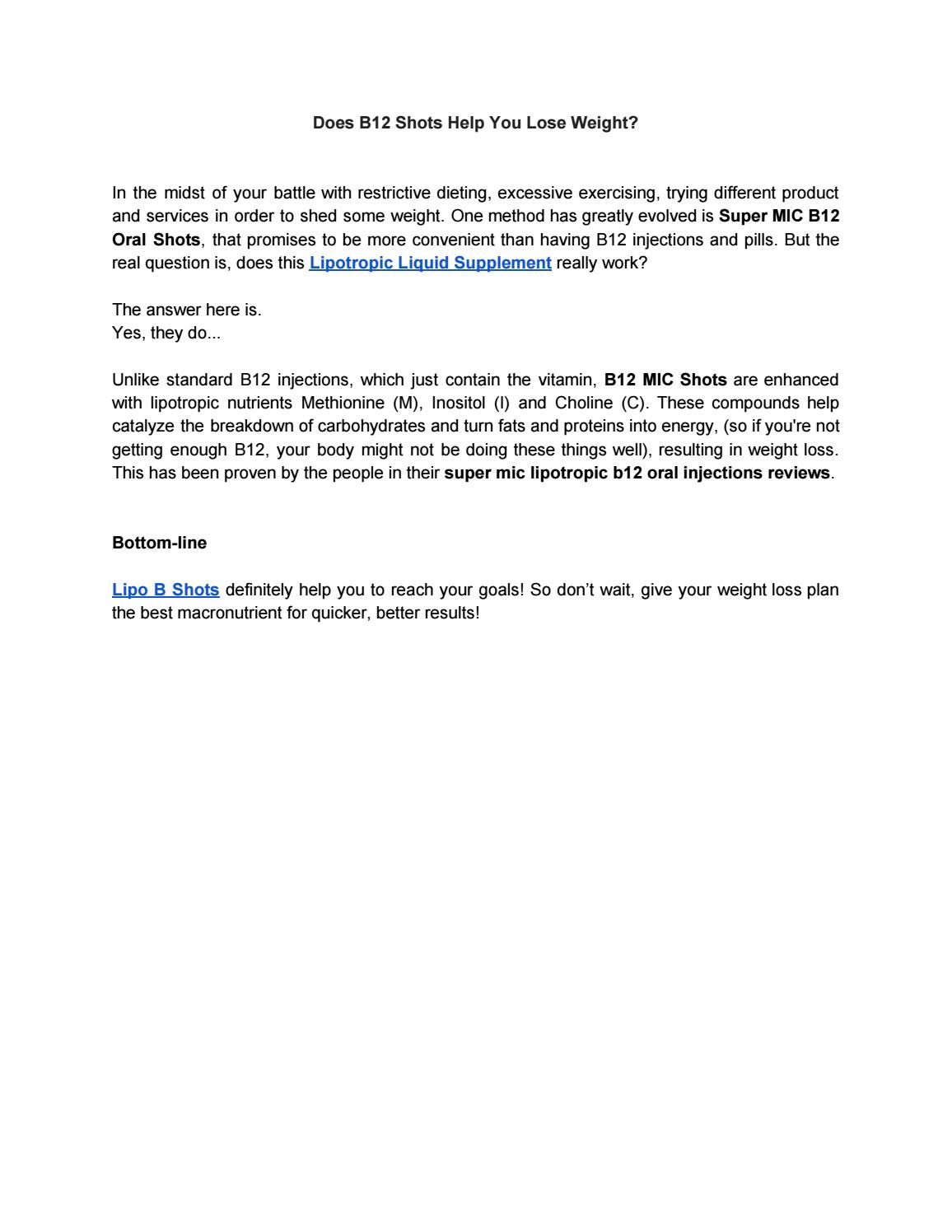Vitamin B12 injections are a common way to address deficiencies, but many people wonder about the longevity of their effects. This comprehensive guide explores how long a B12 shot truly lasts, the factors influencing its duration, the various benefits, and important considerations for maximizing effectiveness. Let’s delve into the science and practicalities of B12 injections to empower you to make informed decisions about your health.
Decoding B12 Shot Effectiveness: How Injection Frequency Impacts Your Body
So, you’re curious about the duration of a B12 shot’s effects? It’s a great question, and the answer is more nuanced than a simple timeframe. B12 shots deliver a rapid boost of this essential vitamin, but its journey through your system is a dynamic process.
A significant portion of injected B12 is processed and eliminated by your kidneys within hours. This highlights a crucial point: maintaining optimal B12 levels often requires a strategic approach to injection frequency. If you’re severely deficient, your body will absorb and retain more B12 initially, like a sponge soaking up water. However, even then, regular injections are likely key for long-term effectiveness.
Several individual factors play a role in how long the effects of a B12 shot last. These include:
- Severity of deficiency: A more pronounced deficiency may necessitate more frequent injections initially.
- Metabolism: A faster metabolism might process B12 more quickly.
- Type of B12: Hydroxocobalamin and cyanocobalamin are two common types used in injections, with some research suggesting that hydroxocobalamin may be retained slightly longer. However, more research is ongoing to fully understand this distinction.
- Individual Absorption Rate: Your body’s inherent ability to absorb B12 also influences the duration of effects. This can be affected by age, medical conditions, and medications. Furthermore, the presence of intrinsic factor, a protein crucial for B12 absorption in the gut, significantly impacts how the body utilizes B12 from injections.
For individuals experiencing neurological symptoms linked to B12 deficiency (like numbness, tingling, or difficulty walking), daily injections may be necessary, especially in the initial phase of treatment. This contrasts with the more common practice of weekly or monthly injections, but the rapid elimination of B12 supports the rationale for more frequent dosing in these cases.
While a B12 shot begins working immediately, noticeable improvements in symptoms can take several days, weeks, or even months, depending on the individual and the severity of the deficiency. This reinforces the importance of consistent B12 injections and highlights that it’s not a quick fix, but rather a sustained approach to replenishing and maintaining healthy levels.
Vitamin B12 Injections: Dosage, Timing, and What to Expect
So you’re considering B12 shots, but you’re unsure about the frequency. The answer depends heavily on your individual circumstances. For severe deficiencies, daily injections might be necessary initially, tapering off as your levels stabilize. Think of it like rehydrating a parched plant – it requires more frequent watering at first. For maintaining healthy levels due to dietary deficiencies, injections might only be needed once or twice a year.
If you’re considering B12 shots for non-medical reasons (such as perceived energy boosts), the frequency is less clear-cut. Some doctors might suggest a trial period of weekly injections for a month, but the scientific evidence supporting non-medical use is limited. It’s crucial to have an open conversation with your doctor about your goals and expectations. They can help determine if B12 shots are the right approach or if other strategies might be more effective.
Here’s a general guideline:
| Scenario | Injection Frequency |
|---|---|
| Severe B12 deficiency | Daily injections initially, then less frequent as determined by a doctor |
| Maintaining healthy B12 levels | Every few months, or even annually, as advised by a doctor |
| Non-medical use | Weekly injections for a trial period (consult a doctor) |
Oral B12 supplementation (1000-2000 µg daily) is also often used alongside injections, especially in treating deficiencies. Your doctor can recommend the best combination of injections and oral supplements tailored to your specific needs.
While B12 injections start working immediately, noticeable symptom improvement may take several days or even weeks. The type of B12 used (cyanocobalamin, hydroxocobalamin, or methylcobalamin) and the administration method (intramuscular is preferred over intravenous) can also affect how your body processes the vitamin.
Decoding B12 Shot Longevity: How Long Do Effects Really Last?
You’re feeling the benefits of B12 shots, but you’re wondering how long they’ll last. The simple answer is that B12 injections do wear off, and their effects are not permanent. The timeframe varies, but for many, a single injection’s effects may last for about a month. After that, deficiency symptoms might start to return, signaling the need for another dose.
Several factors contribute to this timeframe:
- Individual Metabolism: A faster metabolism may process B12 more quickly.
- Severity of Deficiency: A more severe initial deficiency might require more frequent injections to maintain optimal levels.
- Injection Dosage: A higher dose could potentially prolong the effects, but the correct dosage should be determined by your doctor based on your individual needs.
It’s essential to understand that skipping injections can allow B12 levels to drop, potentially leading to a resurgence of symptoms and, in the long run, more serious complications if the deficiency remains untreated. These can include:
- Vascular disease: Including stroke and pulmonary embolism.
- Memory loss
- Ataxia: Difficulty with balance and coordination.
- Peripheral neuropathy: Nerve damage.
- Depression
Regular check-ups and open communication with your doctor are vital for managing B12 levels. They can monitor your progress, adjust your injection schedule as needed, and differentiate between B12 deficiency symptoms and those of other conditions. Ongoing research continues to deepen our understanding of B12, so staying informed and working closely with your healthcare provider ensures you receive the most up-to-date and effective treatment.
Important Considerations
- Consult a Doctor: Before starting any B12 supplementation, consult your doctor. They can assess your B12 levels, identify any underlying causes of deficiency, and determine the appropriate dosage, injection frequency, and type of B12 for your specific needs.
- Not a Weight Loss Solution: B12 injections are not a proven weight loss solution for individuals without a deficiency.
- Potential Side Effects: Though generally safe, B12 injections can occasionally cause minor side effects like pain or redness at the injection site. Rarely, allergic reactions can occur. Report any unusual symptoms to your doctor immediately.
- Alternative Supplementation: For individuals who can absorb B12 through their digestive system, alternative methods like sublingual tablets or nasal sprays might be options. Discuss these with your doctor.
Learn more about the stunning benefits of consuming healthy oils by unveiling the secrets behind golden revive. Also, dive into the fascinating world of cooking oils and uncover the similarities and differences between gingelly oil and sesame oil.
People’s Statements (Preserved verbatim):
- Dr. Anukriti Pant (MBBS, 1.5 years of exp): “Yes, injections are quite effective in raising blood levels of B12 and preventing/reversing its deficiency. These are administered intramuscularly as hydroxocobalamin or cyanocobalamin.”
- Dr. Hiroyuki Ueda, MD (3 years of exp): “The requirement for vitamin B12 is 2.4 µg per day in adults. Patients with vitamin B12 deficiency are treated with oral vitamin B12 preparations, supplemented with 1000-2000 µg per day.”
- Dr. Alex T. Thomas, MD (40 years of experience): “If untreated for a prolonged period, it may lead to: Vascular disease (including stroke, pulmonary embolism), Memory loss, Ataxia, Peripheral neuropathy, Depression.”
- NHS (National Health Service, UK): “It’s important to go to your appointments. If you miss having your injection, the level of vitamin B12 in your body will go down further. This may make your health problems worse. If you do have to miss an appointment, ask your doctor or nurse when you should have the next dose.”
- Compartment Food Containers Make Meal Prep and Lunch Packing Easy - February 10, 2026
- Divided Lunch Containers Revolutionize Your Meal Prep Strategy - February 9, 2026
- Divided Food Storage Containers Transform Meal Prep and Portion Control - February 8, 2026










